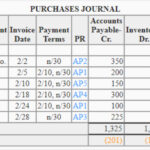Common shareholders are last in line regarding company assets, which means that they will be paid out after creditors, bondholders, and preferred shareholders. Generally, common stockholders enjoy voting rights, but preferred stockholders do not. Furthermore, the dividends paid to preferred stockholders are generally more significant than those paid to common stockholders. Shareholders are entitled to collect proceeds left over after a company liquidates its assets. However, creditors, bondholders, and preferred stockholders have precedence over common stockholders, who may be left with nothing after all the debts are paid.
- A shareholder is a person, company, or institution that owns at least one share of a company’s stock or in a mutual fund.
- However, most shareholders acquire shares in the secondary market and provided no capital directly to the corporation.
- Shareholders are entitled to collect proceeds left over after a company liquidates its assets.
- This may be the goal of a firm’s management or directors, but it is not a legal duty.
A majority shareholder owns and controls more than 50% of a company’s outstanding shares. Minority shareholders hold less than 50% of a company’s stock, even as little as one share. It is important to note that if you are a shareholder, any gains you make as such should be reported as income (or losses) on your personal tax return. These are typically small-size to midsize businesses that have fewer than 100 shareholders.
In exchange for this preferential treatment of dividends, the preferred stockholders typically forego the potential financial gains that the common stockholders might enjoy. A stockholder may own the preferred stock or common stock of a corporation (or both). Preferred stock may have special voting rights, dividends, and other features that are not available for common stock. The main difference between preferred and common shareholders is that the former typically has no voting rights, while the latter does. However, preferred shareholders have a priority claim to income, meaning that they are paid dividends before common shareholders.
EZ Pro Sock Holders
To delve into the underlying meaning of the terms, « stockholder » technically means the holder of stock, which can be construed as inventory, rather than shares. Conversely, « shareholder » means the holder of a share, which can only mean an equity share in a business. Thus, if you want to be picky, « shareholder » may be the more technically accurate term, since it only refers to company ownership.

These sock garters are made of very high quality artificial leather, difficult to distinguish from real leather, but animal friendly! Adam Hayes, Ph.D., CFA, is a financial writer with 15+ years Wall Street experience as a derivatives trader. Besides his extensive derivative trading expertise, Adam is an expert in economics and behavioral finance. Adam received his master’s in economics from The New School for Social Research and his Ph.D. from the University of Wisconsin-Madison in sociology. He is a CFA charterholder as well as holding FINRA Series 7, 55 & 63 licenses.
Ordinary shareholders
Shareholders may have acquired their shares in the primary market by subscribing to the IPOs and thus provided capital to the corporation. However, most shareholders acquire shares in the secondary market and provided no capital directly to the corporation. The board of directors of a corporation generally governs a corporation for the benefit of shareholders.
Revisiting My Yahoo Investment: A Declining Search Business … – Seeking Alpha
Revisiting My Yahoo Investment: A Declining Search Business ….
Posted: Thu, 12 May 2016 07:00:00 GMT [source]
The terms stockholder and shareholder both refer to the owner of shares in a company, which means that they are part-owners of a business. Thus, both terms mean the same thing, and you can use either one when referring to company ownership. A stockholder (also known as a shareholder) is the owner of one or more shares of a corporation’s capital stock.
Reef Aquarium Equipment » Aquarium Filter Socks/Holders » Bubble Magus Sock Holders
There is also a right to sell any shares owned, but this assumes the presence of a buyer, which can be difficult when the market is minimal or the shares are restricted. Also, a stockholder or shareholder can be either an individual or a business entity, such as another corporation or a trust. An owner of a corporation’s shares of common stock is referred to as a common stockholder. The common stockholders elect the corporation’s board of directors and will vote on certain transactions such as merging the corporation with another corporation. Generally, it is the common stockholders who become wealthy when a corporation becomes increasingly successful. In older, more established companies, majority shareholders are frequently related to company founders.
Washing tricks: Get fabulously fluffy towels and never lose a sock again – Daily Mail
Washing tricks: Get fabulously fluffy towels and never lose a sock again.
Posted: Thu, 24 May 2018 07:00:00 GMT [source]
That’s why many companies often avoid having majority shareholders among their ranks. A shareholder is a person, company, or institution that owns at least one share of a company’s stock or in a mutual fund. Shareholders essentially own the company, which comes with certain rights and responsibilities. This type of ownership allows them to reap the benefits of a business’s success.
See More Aquarium Filter Socks/Holders
The corporation’s structure is such that the income earned by the business may be passed to shareholders. Unlike the owners of sole proprietorships or partnerships, corporate shareholders are not personally liable for the company’s debts and other financial obligations. Therefore, if a company becomes insolvent, its creditors cannot target a shareholder’s personal assets. A single shareholder who owns and controls more than 50% of a company’s outstanding shares is called a majority shareholder. In comparison, those who hold less than 50% of a company’s stock are classified as minority shareholders. A stockholder may acquire shares in the primary market when a company initially issues shares to the investment community, which means that the payee is the issuing corporation.
- The terms stockholder and shareholder both refer to the owner of shares in a company, which means that they are part-owners of a business.
- A stockholder may own the preferred stock or common stock of a corporation (or both).
- A single shareholder who owns and controls more than 50% of a company’s outstanding shares is called a majority shareholder.
- Besides his extensive derivative trading expertise, Adam is an expert in economics and behavioral finance.
A stockholder is considered to be separate from the corporation and therefore has limited liability for the corporation’s obligations. These rewards come in the form of increased stock valuations or financial profits distributed as dividends. Conversely, when a company loses money, the share price invariably drops, which can cause shareholders to lose money or suffer declines in their portfolios. It is a common myth that corporations are required to maximize shareholder value. This may be the goal of a firm’s management or directors, but it is not a legal duty.
Shareholders, or stockholders, are the owners of a company’s outstanding shares, which represents a residual portion of the corporation’s assets and earnings as well as a percentage of the company’s voting power. Stockholders have a right to participate in the distribution of corporate assets in the form of dividends (if they are paid) and possibly through the sale of their holdings at a profit on the stock market. Individuals may become shareholders by buying common stock in corporations through brokers or directly from the company (if they offer a direct investment plan). In many countries, corporations may also offer employee stock options as a benefit for workers. If a company goes bankrupt, however, common shareholders are last in line to be repaid (behind creditors and preferred shareholders).

However, most stockholders acquire shares on the secondary market, and so are paying current stockholders to acquire their shares. A stockholder has the lowest priority for receiving payment in the event of a corporate liquidation, with secured and general creditors being entitled to full payment before any residual amounts are paid out to stockholders. This can mean that shareholder investments may be entirely lost in the event of a corporate liquidation. This is opposed to shareholders of C corporations, who are subject to double taxation. Profits within this business structure are taxed at the corporate level and at the personal level for shareholders.
He currently researches and teaches economic sociology and the social what is a ledger account studies of finance at the Hebrew University in Jerusalem.

Preferred shareholders hold preferred stock, which often pays a high and steady dividend but comes with no voting rights. Preferred shares are therefore sometimes thought of as a sort of debt-equity hybrid security. The owners of the shares
of preferred stock are known as preferred stockholders (or preferred shareholders). The preferred stockholders usually accept a fixed cash dividend that will be paid by the corporation before the common stockholders are paid a dividend.

Laisser un commentaire